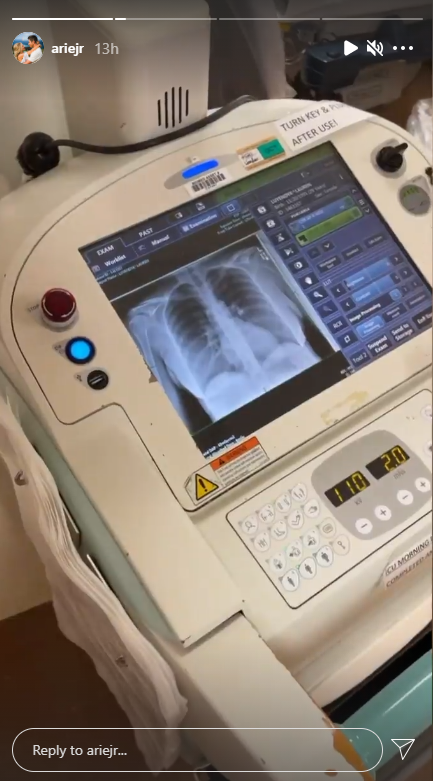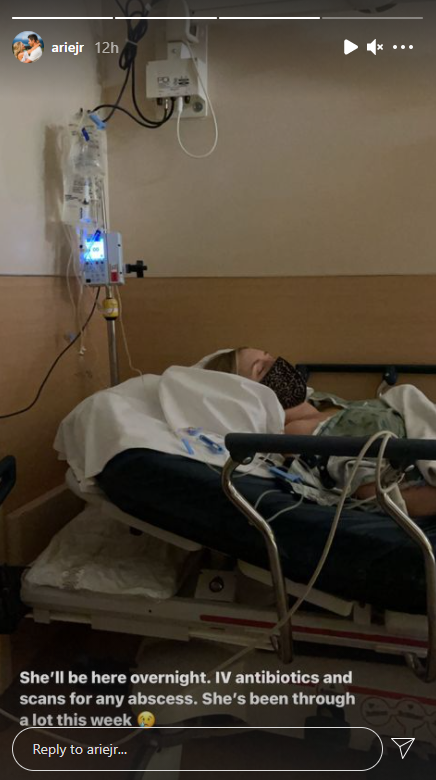'Bachelor' alum Lauren Burnham hospitalized with mastitis
Just six weeks after giving birth to twins Senna and Lux, Lauren Burnham Luyendyk has been hospitalized with mastitis.
Burnham Luyendyk met husband Arie Luyendyk Jr. on the reality dating show "The Bachelor," and the pair got married in 2019. In addition to their twins, born on June 11, the couple have a 2-year-old daughter, Alessi.

Luyendyk shared in his Instagram stories that his wife had been admitted to the hospital for a severe case of mastitis.
"Not good," the 39-year-old wrote. "Mastitis is getting worse, even on antibiotics. Hate this for her."
In later stories, Luyendyk Jr. shared images of his wife's chest X-ray and tubes of her drawn blood.
"She'll be here overnight," he shared. "IV antibiotics and scans for any abscess. She's been through a lot this week."
Related: The couple are also parents to daughter Alessi, born in 2019.
Dr. Christine Greves, an OB/GYN at Orlando Health Winnie Palmer Hospital for Women & Babies, said Burnham Luyendyk's mastitis is most likely what's known as lactational mastitis, meaning it occurs in breastfeeding women.
"Lactational mastitis is a condition when the breast can become red, swollen and painful," Greves told TODAY Parents, adding that the condition can occur in 2% to 10% of breastfeeding mothers. "The most common time that it presents within the first three months of breastfeeding."

Symptoms of mastitis include pain, redness and swelling. Greves said that if those symptoms last longer than a few hours, it's a good idea to check in with a doctor in case antibiotics are needed.
"That's when you need to think if it's an infection," Greves explained. "It's usually accompanied by a fever and an overall sense of body achiness, which we call malaise, and pain."
Situations that leave women at risk for mastitis, according to Greves, include incidents of having had mastitis previously, problems with breastfeeding such as clogged milk ducts, rapid weaning, poor nutrition, stress, cracked nipples or infrequent feedings.
"The risk can be reduced by having a complete emptying of the breast frequently to reduce the incidence of stagnant milk hanging around in there," Greves said.

It's rare to be hospitalized for mastitis, as in Burnham Luyendyk's case, according to Greves. Nine out of 10,000 breastfeeding women require hospitalization for the condition, she said.
Greves said it's important not to wait too long once breast pain and swelling occur before talking to a doctor.
"If you're noticing pain and redness and swelling, try to put some warm compresses on your breasts to see if it's a clogged milk duct," she said. "But if it's not gone in 12 to 24 hours, you need to see a doctor in case you need antibiotics. You don't want it to lead to a breast abscess, for example."
Watch TODAY All Day! Get the best news, information and inspiration from TODAY, all day long.
Sign up for the weekly TODAY Parents Newsletter!
Related:
